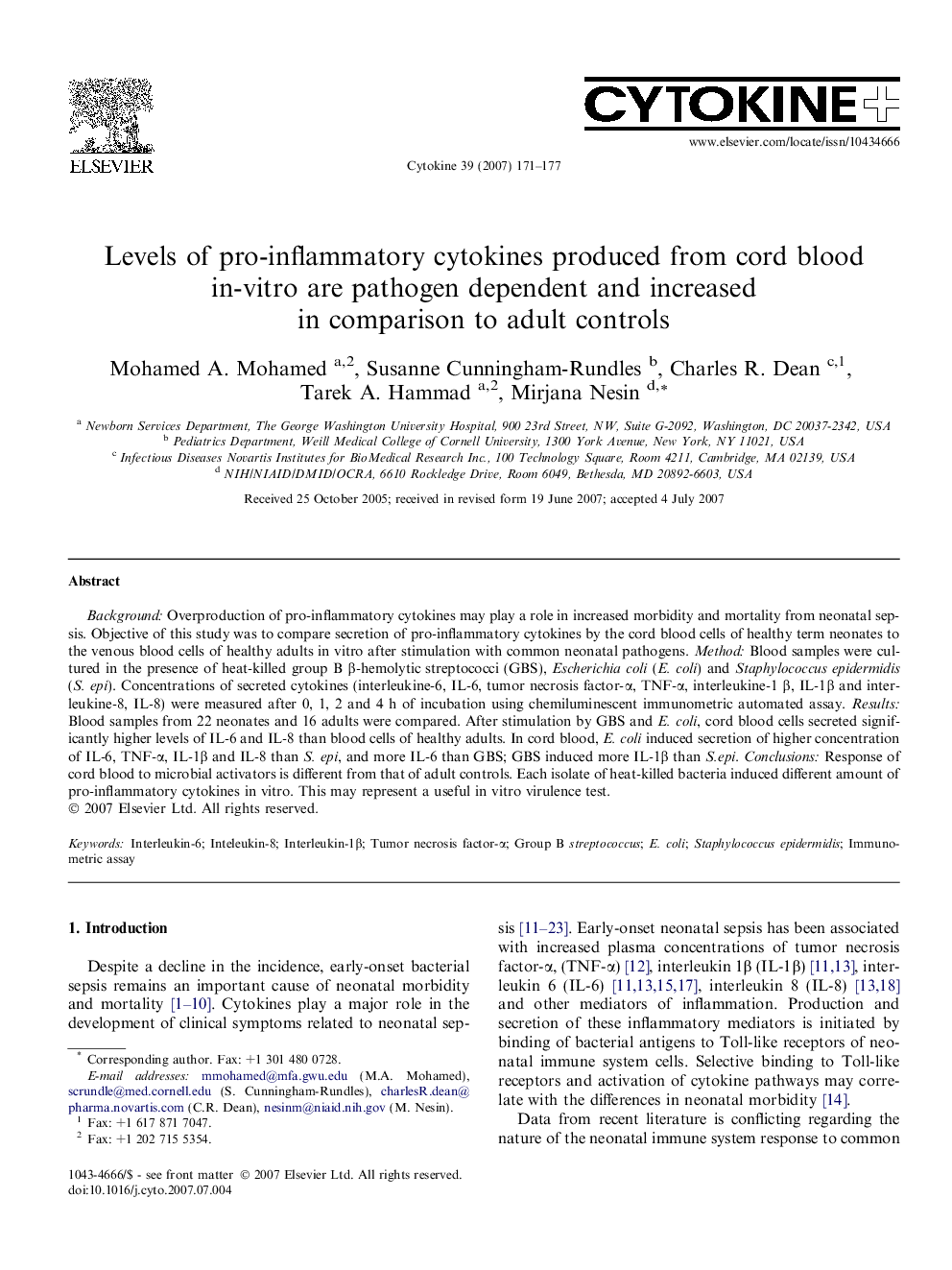| Article ID | Journal | Published Year | Pages | File Type |
|---|---|---|---|---|
| 2795776 | Cytokine | 2007 | 7 Pages |
Abstract
Background: Overproduction of pro-inflammatory cytokines may play a role in increased morbidity and mortality from neonatal sepsis. Objective of this study was to compare secretion of pro-inflammatory cytokines by the cord blood cells of healthy term neonates to the venous blood cells of healthy adults in vitro after stimulation with common neonatal pathogens. Method: Blood samples were cultured in the presence of heat-killed group B β-hemolytic streptococci (GBS), Escherichia coli (E. coli) and Staphylococcus epidermidis (S. epi). Concentrations of secreted cytokines (interleukine-6, IL-6, tumor necrosis factor-α, TNF-α, interleukine-1 β, IL-1β and interleukine-8, IL-8) were measured after 0, 1, 2 and 4 h of incubation using chemiluminescent immunometric automated assay. Results: Blood samples from 22 neonates and 16 adults were compared. After stimulation by GBS and E. coli, cord blood cells secreted significantly higher levels of IL-6 and IL-8 than blood cells of healthy adults. In cord blood, E. coli induced secretion of higher concentration of IL-6, TNF-α, IL-1β and IL-8 than S. epi, and more IL-6 than GBS; GBS induced more IL-1β than S.epi. Conclusions: Response of cord blood to microbial activators is different from that of adult controls. Each isolate of heat-killed bacteria induced different amount of pro-inflammatory cytokines in vitro. This may represent a useful in vitro virulence test.
Keywords
Related Topics
Life Sciences
Biochemistry, Genetics and Molecular Biology
Endocrinology
Authors
Mohamed A. Mohamed, Susanne Cunningham-Rundles, Charles R. Dean, Tarek A. Hammad, Mirjana Nesin,
